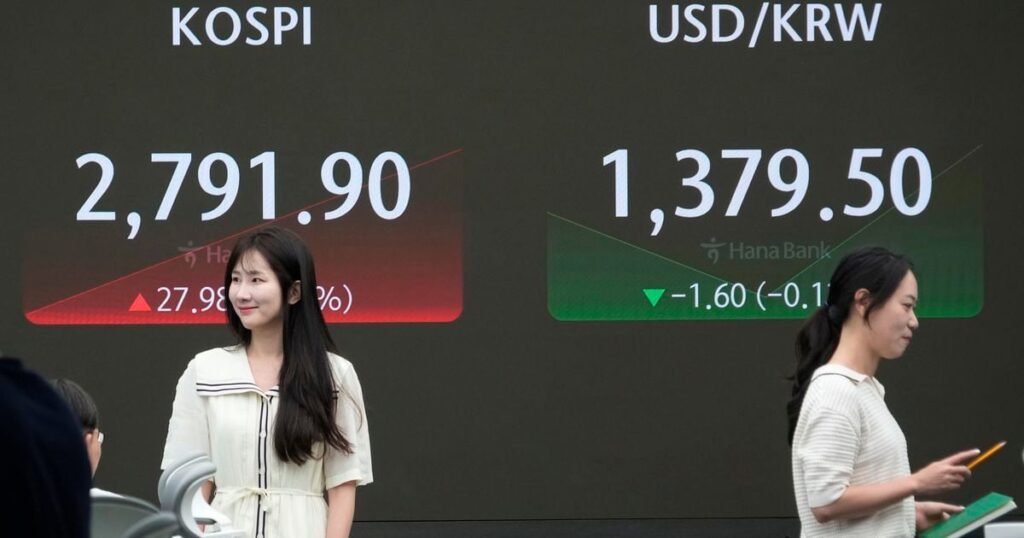Minutes from the Bank of Japan’s latest policy meeting revealed debate among policymakers about whether a weaker yen could push up inflation further, and Governor Kazuo Ueda has signaled he could raise interest rates in the coming months, depending on the economic data that emerges at the time.
“The Nikkei’s movements reflect current volatility, with the index trading in a broad consolidation so far,” IG Asia said in a commentary.
Hong Kong’s Hang Seng Index rose 2 percent to 18,264.51, while the Shanghai Composite Index fell 0.3 percent to 3,020.03, after the head of the China Securities Regulatory Commission said at a financial forum in Shanghai that the government would step up supervision of all financial activities to prevent potential risks.
In Sydney, the S&P/ASX 200 lost 0.2% to 7,764.30. South Korea’s KOSPI rose 1% to 2,792.14.
Meanwhile, Taiwan’s Taiex rose 1.8%, while Bangkok’s SET fell 0.1%.
On Tuesday, the S&P 500 rose 0.3% to 5,487.03, its 31st all-time high this year. The Nasdaq Composite Index rose less than 0.1%, to 17,862.23. The Dow Jones Industrial Average rose 0.2%, to 38,834.86.
Nvidia was the star again, rising 3.5% to be the strongest driver lifting the S&P 500. The company’s market capitalization once again surpassed $3 trillion.
Demand for Nvidia’s chips has proven surprisingly strong, as the company’s chips help develop AI, which backers hope will change the world as much as or even more than the internet. Nvidia’s revenue is tripling every quarter, and profits are soaring at an even more astounding pace. The company’s shares are up nearly 174% this year, and Nvidia alone accounted for nearly a third of the S&P 500’s gain in the 12 months through May.
Of course, the potential danger of having a handful of superstars driving most of the U.S. stock market’s record rally is that it makes the market more vulnerable. If more stocks were involved, that could be a sign of a healthier market.
The Commerce Department reported that retail sales rose 0.1% in May, below economists’ expectations, while April sales were revised down to a 0.2% decline from flat. Sales rose 0.6% in March and 0.9% in February. This comes after a 1.1% drop in January, hurt in part by bad weather.
The weaker-than-expected data could be a warning signal that household spending, a mainstay of the U.S. economy, is collapsing. Inflation has slowed from its peak but remains high, with lower-income households especially struggling to keep up with rising prices.
Still, a Bank of America survey of global fund managers showed they have been the most optimistic about stocks since fall 2021, with relatively few assets tucked away in cash and heavy allocations to equities. Fewer managers are also anticipating a “hard landing,” in which the economy falls into a deep recession.
In other trading early Wednesday, benchmark U.S. crude oil was unchanged at $80.71 a barrel in electronic trading on the New York Mercantile Exchange.
Brent crude rose 2 cents to $85.35 a barrel.
The dollar rose to 157.87 yen from 156.87 yen. The euro fell to 1.0737 dollars from 1.0740 dollars.
___
AP Business Writer Stan Cho contributed.
Credit: AP
Credit: AP
Credit: AP
Credit: AP
Credit: AP
Credit: AP




